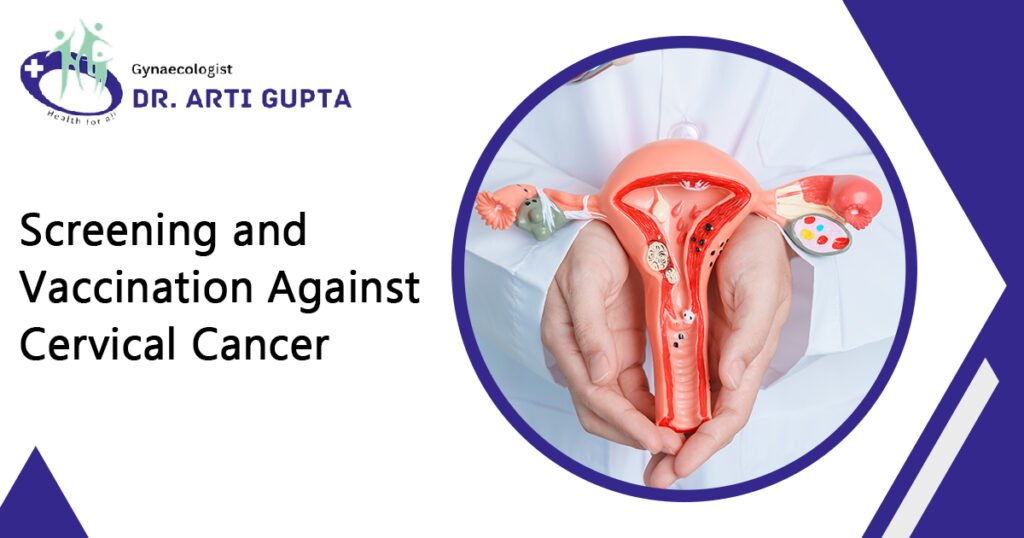Across the globe, cervical cancer affects millions of women. However, with advancements in medical science, effective screening and vaccination methods are available to prevent and manage this disease. This blog explores the importance of cervical cancer screening, the Pap smear test, and the Human Papillomavirus (HPV) vaccine.
Understanding Cervical Cancer
The cervix, the part of the uterus that connects to the vagina, is where cervical cancer originates. The main cause is persistent infection with high-risk strains of the Human Papillomavirus (HPV). Early detection through regular screening and vaccination can significantly reduce the risk of developing cervical cancer.
The Importance of Screening
Cervical cancer can be detected early and prevented with regular screening. Screening can identify precancerous changes in cervical cells, allowing for early intervention before cancer develops.
The Pap Smear Test
The Pap smear test, also known as a Pap test, is a simple and effective screening tool used to detect abnormal cells in the cervix. Here’s how the process works.
- Preparation: The patient lies on an examination table, and a speculum is gently inserted into the vagina to allow the doctor to view the cervix.
- Sample Collection: Using a small brush or spatula, the doctor collects cells from the surface of the cervix.
- Laboratory Analysis: The collected cells are sent to a laboratory, where they are examined under a microscope for any abnormalities.
The Pap smear test is generally recommended for women starting at the age of 21 and should be conducted every three years. For women aged 30 to 65, a Pap test combined with an HPV test every five years is recommended.
HPV Vaccination
The HPV vaccine is a preventive measure against the most common high-risk strains of HPV that cause cervical cancer. It plays a critical role in reducing the incidence of cervical cancer and other HPV-related diseases.
Who is the HPV Vaccine For?
The HPV vaccine is recommended for both males and females to prevent HPV infections. The most effective time to administer it is before an individual becomes sexually active.
When Should the HPV Vaccine Be Given?
- Children and Adolescents: The HPV vaccine is typically given to children aged 11 to 12 years, but it can be started as early as age 9. The vaccination series usually consists of two doses administered six to twelve months apart.
- Young Adults: For those aged 15 through 26 years, the vaccine is given in a three-dose series over six months.
- Adults: The HPV vaccine is also recommended for some adults up to age 45 who were not adequately vaccinated earlier.
Who Should Not Get the HPV Vaccine?
- Pregnant Women: The HPV vaccine is not recommended during pregnancy.
- Individuals with Severe Allergies: People with severe allergies to any component of the HPV vaccine or those who had a severe allergic reaction to a previous dose should not receive the vaccine.
Expert Care with Dr. Arti Gupta
Dr. Arti Gupta, a renowned gynaecologist, obstetrician, and IVF specialist emphasizes the importance of regular cervical cancer screening and HPV vaccination. Dr. Gupta at Mayom Hospital offers state-of-the-art facilities and personalized care for women’s health needs. Her expertise in reproductive health and fertility ensures that patients receive the best possible guidance and support.
Conclusion
Cervical cancer is a preventable disease with the right measures in place. Regular screening through Pap smear tests and vaccination against HPV are vital steps in reducing the risk of cervical cancer. By staying informed and proactive, women can protect their health and well-being.
For expert advice and care, consult Dr. Arti Gupta.
- Our Blogs

